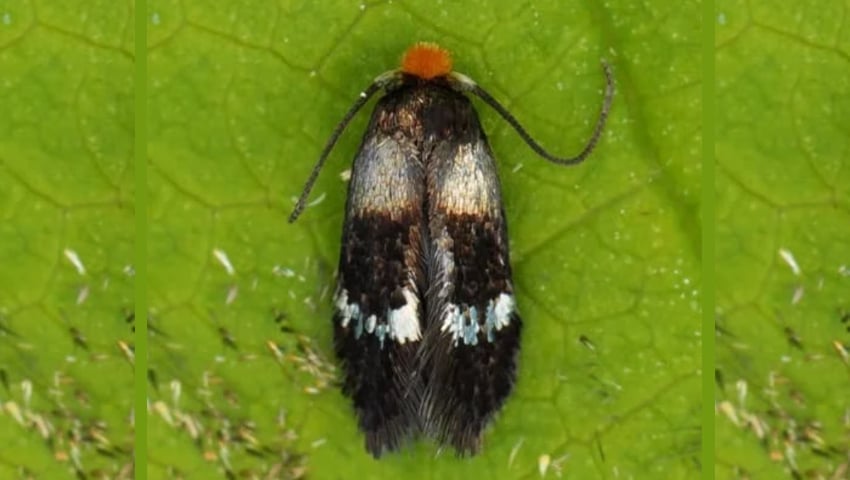The Countryside Regeneration Trust (CRT) has announced that an extremely rare micro moth has been discovered by a conservation expert during a nature walk held at Bere Marsh Farm, Dorset.
Two of the moths, known as the Gold-fringed Dot, or Bohemannia auriciliella, were found and have been examined by experts for ratification.
The tiny moths have a wingspan of 6 to 6.8mm and have been recorded at fewer than a dozen sites in the UK, including Gloucestershire, Wiltshire and Hampshire. They have been more commonly spotted in the Netherlands and Belgium and this latest find is perhaps evidence they are spreading, say experts.
This is the first time they have been officially identified in Dorset.
Jack Oughton, of the Dorset Moth Group, who led the Marvellous Moths and Beautiful Butterflies Walk at the CRT property this summer, said the discovery will hopefully enable experts to find out more about how the elusive moth’s larvae feed, as little is currently known.
He said, “This is a poorly understood moth. We do not truly know what its requirements are: it obviously requires something niche. This discovery may help us find out what that is.
“Finding these two samples demonstrates the diversity of wildlife that is found at Bere Marsh Farm. It is a great habitat in general for moths as there is a wide range of habitats with the river, woods, grassland and meadows.”
Dr Oughton found the moths at two separate locations on the farm after setting down moth traps. He said, “One was found in the Angela Hughes Nature Reserve and the other in the Ham Down woodland. It is an exceedingly small moth, a couple of millimetres long. It has silvery bars across its shoulders and an orange head. You have to look at it under a hand lens to appreciate it.”
Oughton said it is thought the moth larvae thrive on small-leaved lime, a couple of which may be found at Bere Marsh Farm, although they could be hybrids.
“We would need to spot their egg-laying habits to find out more,” he said. “If we know what the moth requires, we are more likely to find the larval stage and that would be great. If other sites in North Dorset come to light, it might show the moth is spreading.”
Phil Sterling, author of a Field Guide to the Micro-Moths of Great Britain and Ireland, has also inspected the moth and confirmed it is the rare specimen.
Nick Dobbs, CRT Community Engagement Manager, said, “The CRT is absolutely delighted to have welcomed Jack as guest host of two sold out marvellous moth events at Bere Marsh Farm this summer. Jack’s knowledge of UK moths is astonishing, but even he can be surprised it would seem. I can recall the moment when a look of excitement appeared on his face when he spotted this very rare moth species. Not one but two no less. Thanks, Jack, for making both these events so special.”
Photo: Gold-fringed Dot, or Bohemannia auriciliella
